2020 Kawasaki Z900 ABS First Ride Review
MO's "Best Standard" of 2017 is prettier, sportier and a better bargain than ever
We may have done a grave disservice to the Z900. When it was brand new in 2017, we bestowed upon the newly right-sized Kawasaki (bigger than the Z800 but smaller than the Z1000), our coveted Best Standard of the Year award – and that is one dog-eat-dog category. Three years ago we (I) wrote:
2020 Kawasaki Z900
| Engine | 19.0/20 |
| Suspension/Handling | 14.0/15 |
| Transmission/Clutch | 9.0/10 |
| Brakes | 8.5/10 |
| Instruments/Controls | 4.5/5 |
| Ergonomics/Comfort | 8.5/10 |
| Appearance/Quality | 8.5/10 |
| Desirability | 9.0/10 |
| Value | 9.5/10 |
| Overall Score | 90.5/100 |
What’s going on here is a classic Kawasaki tried-and-true inline-Four, sleeved from the Z1000’s 1043cc down to 948cc (via 77mm bores becoming 73.4mm ones) and inhaling through 36mm throttle bodies instead of 38mm ones. A lovely new steel frame is supposed to lop something like 25 pounds off the less-Sugomi-styled package – down to 463 lbs. But the biggest cut came to the bottom line: A Z1000 with ABS is an $11,999 motorcycle. The Z900 ABS is $8,799 ($8,399 no ABS), and it’s hard to put your finger on any area where Kawasaki economized.
If the smaller-motored bike is any slower than the bigger Z, you’d be hard pressed to tell anywhere up to 6000 rpm or so; the Z900 feels to have more low-rev torque than the 1000. Could be just the reduced weight at work… but this bike has tons of power right off idle and a nice light clutch that makes it easy to deploy. We’ll have to get to the dyno to get the full scoop, but a lack of power feels like it’s going to be the least of the Z900’s problems (if it has any). Furthermore, as Roderick observed, this is one of the smoothest-running Z naked bikes Kawasaki’s ever produced, with barely a tingle coming through the bar at 5500 rpm and 80 mph.
All that still applies. But when the Z900RS appeared the next year, followed by the Z900RS Cafe the year after, we all had our nostalgia pinball flippers so badly tilted that it seems we forgot all about the sweet original Z they were both based upon. And that was just wrong, because now that we’ve gotten over our infatuations with those glamor queens, it’s the Sugomi Z we’ve come back home to, tails between our legs. I have, anyway.
There’s no more power than before, but that’s okay because the 115 our Z makes, at the rear tire, is plenty. Fuelling via our four 36mm throttle bodies is impeccable in either Road or Sport modes (I never tried Rain), and the RS and RS Cafe powerbands, compared to this one, really are a tad lethargic, like Kawasaki added weight to their flywheels. More period correct, I suppose?
The Z just wants to rev. It’s happy to roll along smoothly at 2500 rpm all day in sixth, there’s plenty of punch in the midrange – but the 948 cc engine loves to zing past 10k whenever the road opens up, too. Riding in the curves, like we always wind up doing, 115 feels like an almost ideal amount of power as we grab greedy handsfull of power off the corners, mostly trusting KTRC (Kawasaki Traction Control) to have our back.
Trustwise, the new bike gets the same Dunlop Roadsport 2 tires we liked so much on the new Suzuki Katana; they too give the new Z a sportier feel than it had before; more agile, quicker to turn and lighter on its feet. The other part is down to Kawasaki making a couple of significant suspension tweaks: The rear spring rate has gone from 99 to 103 Newton meters (76 ft-lbs). In the 41mm fork, rebound damping (left leg adjustable) has been increased from 8 clicks out from fully in to 6 clicks, and spring preload has increased from 3 turns from counterclockwise to 8.25 turns from counterclockwise (also left leg only).
All those changes have resulted in a motorcycle that feels decidedly more solid and sharper-edged than before, without really doing away with any of the previous bike’s everyday usability and comfort. There’s more spring support at both ends; the stiffer rear spring keeps the front end more planted all the time – but there’s still really good damping in both directions that deals politely but firmly with big bumps and small. Also, I remember a Z1000 having serious cornering clearance issues one day around Chuckwalla raceway; this Z900 feels like it will have way less of a problem if you take it to the track.
The main detriment to comfort with this one is a seat that’s a bit on the thin side; there’s an “Ergo-Fit” seat in the accessories section that adds about an inch more thickness, especially nice for taller peoples. My legs are only 30 inchers, but I can flat-foot this one on both sides, so an extra inch of seat foam wouldn’t be a problem.
In any case, when you’re connecting apexes on your favorite road, I don’t recall the previous Z900 being any kind of a slouch, but this new one feels like it might be able to hang with many, way more expensive bikes. With its fat payload of midrange power, really quick handling, new-found grip, serious suspension and sit-up ergonomics, there’s little to hold it back – including its lubricious six-speed gearbox and light-action slip/assist clutch – which you don’t need at all past third gear. Just the tiniest roll-off of the throttle snicks the next gear in.
I don’t know that I ever felt the old bike flexing, but whatever they strengthened in the “swingarm pivot area” really does have the new Z feeling rock solid, but like a really light rock: 467.5 lbs is the claimed curb weight, which jibes very closely with the 2017 bike we weighed ourselves.
Kawasaki really does have you all figured out, why fight it, 40-year old, 5’11”, semi-married male? During the other 29% and 21% of the time you’ll be surface street and highway commuting (say, is that half the time?), this is a great motorcycle – large enough to see and be seen in traffic, skinny and nimble enough to make quick work of four-wheeled entanglements – and plenty comfortable enough for an hour or two at a stretch. The only person who’s not going to be happy is the passenger, perched up there on the sharp tail of the Sugomi, but research tells us they’ll only be there 14% of the time – a classic design element that may be more feature than bug.
Again, even though the engine bolts to that trellis solidly in five places – this is one of the smoothest-running fours we can remember riding, and it’s not just this bike, because we commented likewise on the original 2017 model. With traffic still coronavirused at home, you can crank it up to 6000 rpm and 88 mph, and sail serenely along, at just about the right angle to offset windblast.
Brakes? Yes: 300mm petal-style discs up front squeezed by vintage yet highly effective Nissin four-piston calipers, and another 250mm disc at the rear. The front has more than enough power to mush your eyeballs onto your faceshield before ABS kicks in; out back it’s a little too easy to get the rear into its ABS threshold, but better that than locking it up midcorner, no?
What you don’t get at this bargain price is the latest electronic aids: We’ve got ABS, but not lean-sensitive ABS, because we’ve got no IMU. And while KTRC traction control seems to work fine, it’s not the latest technology. Who cares? It’ll all be outdated next year anyway. If you’re Ready to Race, you’ll need the new KTM 890 Duke or something equally dramatic. What’s kind of nice about Kawasakis like this one is how low-stress and in fact understressed they feel. It’s ready to race but just as happy to tool around.
Riding back and forth past Brasscannons’ Canon on a warm day, accelerating briskly and repeatedly up and down through the gears trying to clutch up baby wheelies in second, the temp gauge never exceeded 175, the engine and trans never skipped a beat or missed a shift – and heat management is a complete non-issue. The old inline-Four feels like it could idle smoothly under you til Armageddon if you gave it an IV drip of gasoline, and it’s willing to throw all 115 horses into harness with about 1.5 seconds notice whenever you say the word. (Speaking of wheelies, there’s a nice hump near my house just after a tight right, and I pulled one of the hornest monos of my life with a handful of gas and a dip of the clutch in third gear. It’s just a fun bike to ride and encourages delinquency even in old people.)
At the same time, the new TFT screen is swell and easily legible all the time. Being able to link up the Bluetooth to see who’s calling and texting is nice. Not that I did…
There are adjustable levers for both brake and clutch on the handlebars, and a genuine helmet lock right there on the left frame downtube – highly convenient. The new LED light seems really bright when I pull into my garage, and the new LED taillight is cool too.
Are you getting the impression I like this one? I do. Looks are completely subjective. I was a harsh critic of the droopy bosomed Z1000, but this one I like way better. The steel trellis weaving in and out of the really nicely finished and tight-fitting bodywork looks sublime and tight, and makes that classic Kawi four-banger the center of attention. If there are flaws or ugly tank seams, they’re at least hidden behind cleverly placed modesty panels… leave the exhaust system alone, please. Parked next to a new Duke 890 and Triumph Street Triple at MotoGP Werks on dyno day, for me the Z stole the show with superior fit and finish. Even Chris Redpath was impressed, especially after riding it on the dyno. Those other two might be a tick quicker around a road course; I don’t think I care. This Z, without a single “R” in its name, will be right up both their Euro tailpipes on the road (it’s not even invited to the track day).
For $8,999, the Z is a helluva deal.
2020 Kawasaki Z900
+ Highs
- Suddenly even sportier than before
- Have you done something to your hair?
- 115 happy smooooth-running horsepower for $8,999
– Sighs
- Standard seat’s a bit thin; passengers won’t be for long
- Bluetooth, but I gotta pay extra for a USB port?
- Kawasaki gets no respect from coastal elites
In Gear
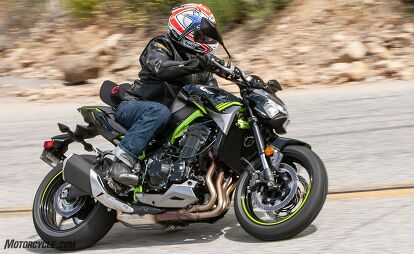
- Helmet: Arai Corsair X Hayden Laguna Seca $980
- Jacket: Vanson AR3 $563
- Gloves: Dainese Quanto 4-Stroke Evo $220
- Jeans: Reax 215 jeans $169
Boots: Dainese Torque D1 Out $400
2020 Kawasaki Z900 ABS Specifications | |
|---|---|
| MSRP | $8,999 – 9,299 |
| Engine Type | 948 cc liquid-cooled inline-Four cylinder, DOHC, four valves per cylinder |
| Bore and Stroke | 73.4 x 56.0mm |
| Compression Ratio | 11.8:1 |
| Rear Wheel Horsepower | 115.5 hp @ 9700 rpm |
| Torque | 68.1 lb-ft @ 8100 rpm |
| Transmission | 6-speed; slip/assist clutch |
| Final Drive | Chain |
| Front Suspension | 41mm inverted fork with spring preload and rebound damping adjustability; 4.7 in. travel |
| Rear Suspension | Horizontal back-link shock, stepless rebound damping, adjustable spring preload/5.5 in |
| Front Brake | Dual 300mm discs; four-piston calipers, ABS |
| Rear Brake | 250mm disc; one-piston caliper, ABS |
| Front Tire | 120/70-ZR17 |
| Rear Tire | 180/55-ZR17 |
| Rake/Trail | 24.5 deg/4.1 in |
| Wheelbase | 57.3 in. |
| Seat Height | 31.5 in. |
| Curb Weight (Claimed) | 467.5 lbs (our ’17 model was 469 lbs) |
| Fuel Capacity | 4.5 gal. |
| Fuel mileage (observed) | 38 mpg |
| Colors | Metallic Graphite Gray/Metallic Spark Black, Candy Plasma Blue/Metallic Matte Fusion Silver! |
| Warranty | 12 months, transferable, unlimited-mileage limited warranty; extended coverage available with a Kawasaki Protection Plan. |
We are committed to finding, researching, and recommending the best products. We earn commissions from purchases you make using the retail links in our product reviews. Learn more about how this works.
More by John Burns



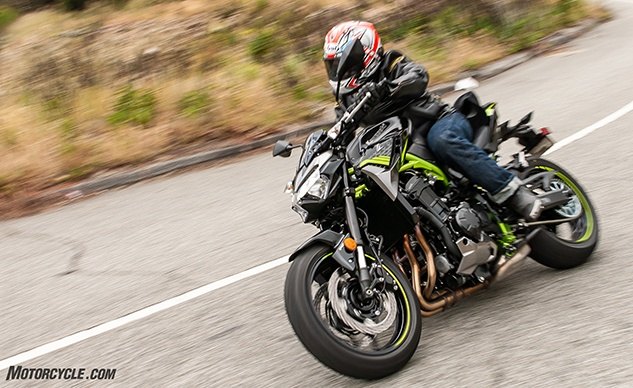







































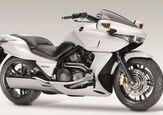
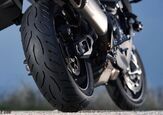
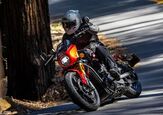
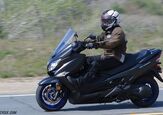
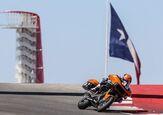
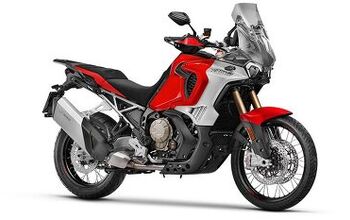
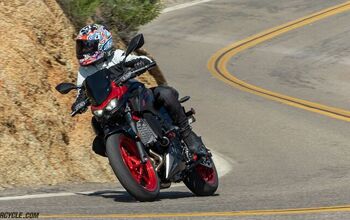
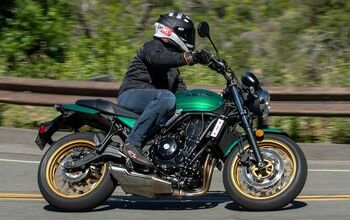
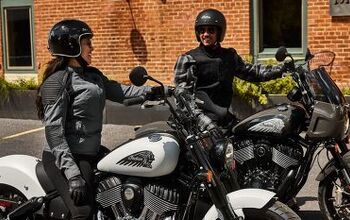
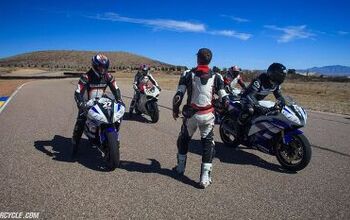
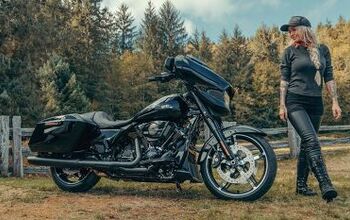

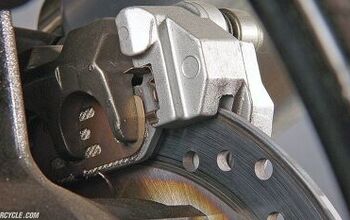
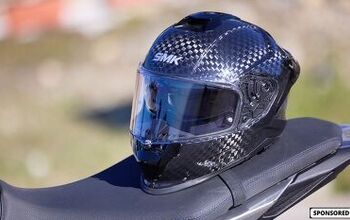

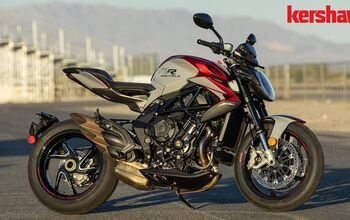
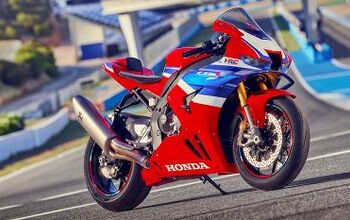
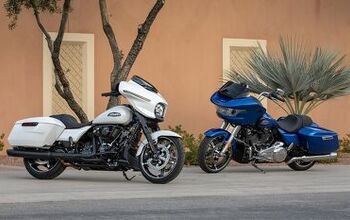
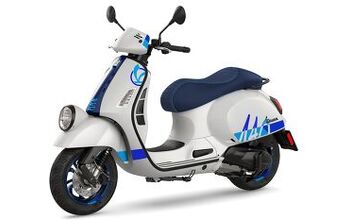

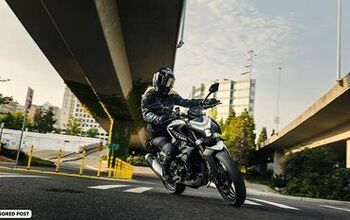
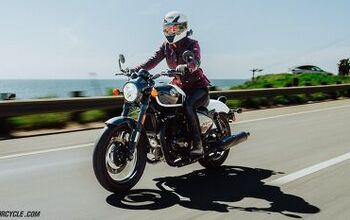

Comments
Join the conversation
This is one of the rare Kawasaki motorcycles that I am interested in.
The good thing about Kawasaki not getting respect is that their bikes end up cheap on sales floors.
Anytime I see a modern Kawasaki I think back to all the Big K bikes I've owned and loved, then look at the new models and think, "why don't you look great instead of shite?"